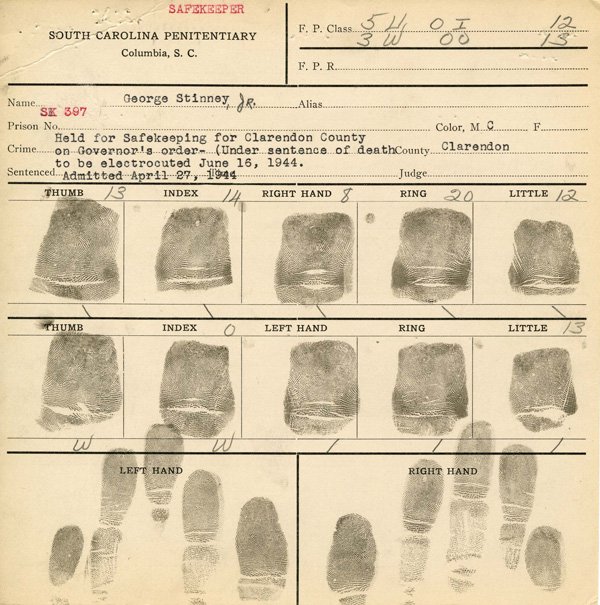A judge has vacated the conviction of a 14-year-old boy who was executed for allegedly killing two girls some 70 years ago in South Carolina.
The judgment against George Stinney, the youngest person to be executed by an American state since the 1800s, effectively exonerates the boy, said family attorney Matt Burgess.
A black teen in the Jim Crow South, Stinney was accused of murdering two white girls, ages 7 and 11, as they hunted for wildflowers in Alcolu, about 50 miles southeast of Columbia.
Stinney, according to police, confessed to the crime.
No witness or evidence that might vindicate him was presented during a trial that was over in fewer than three hours. An all-white jury convicted him in a flash, 10 minutes.
“Given the particularized circumstances of Stinney’s case, I find by a preponderance of the evidence standard, that a violation of the Defendant’s procedural due process rights tainted his prosecution,” wrote Circuit Judge Carmen Tevis Mullen in her decision, dated Tuesday.
She said that sentencing a 14-year-old to the death penalty constitutes cruel and unusual punishment.
Earlier this year, attorneys for Stinney’s family had asked for a new trial, saying the boy’s confession was coerced and that Stinney had an alibi, his sister, Amie Ruffner, who claims she was with Stinney when the murders occurred.
Ruffner, Stinney’s sister, told CNN affiliate WLTX that she and Stinney saw Betty June Binnicker, 11, and Mary Emma Thames, 7, the day they died. Stinney and Ruffner were tending to their family’s cow near some railroad tracks close to their home.
“They said, ‘Could you tell us where we could find some maypops?’ ” Ruffner recalled. “We said, ‘No,’ and they went on about their business.”
The girls were found the next day in a water-logged ditch with injuries to their head. Mary had a 2-inch laceration above her right eyebrow and a vertical laceration over her left, according to a 1944 medical examiners’ report.
Ruffner told WLTX, police took Stinney and another of her brothers away in handcuffs while their parents were not at home. One brother was released, she said, while Stinney faced police questioning without his parents or a lawyer.
The police “were looking for someone to blame it on, so they used my brother as a scapegoat,” Ruffner said.



